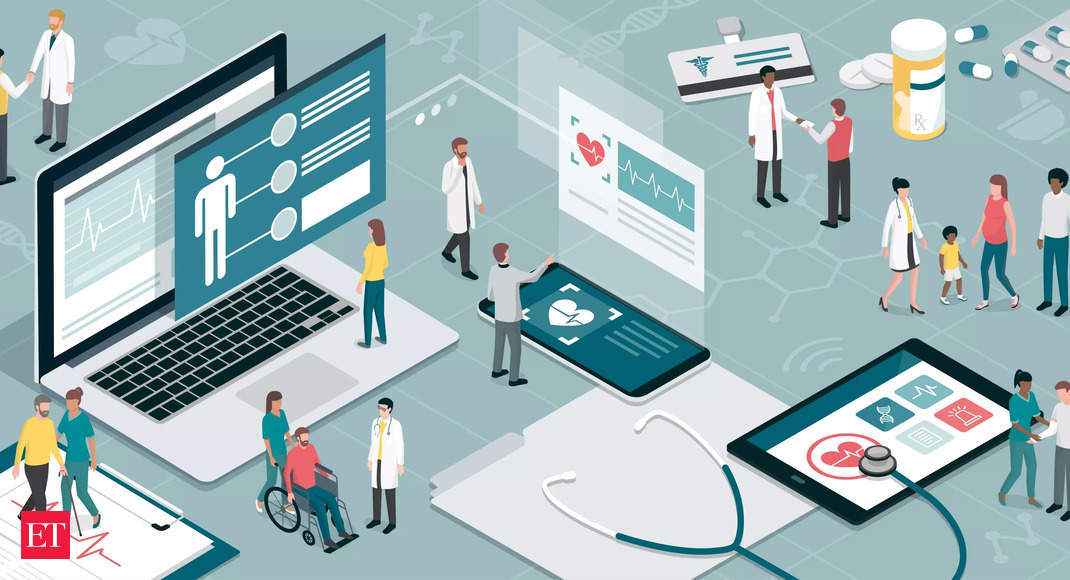
Budget 2023: A Blended approach for India’s healthcare
Budget 2023: A Blended approach for India’s healthcare
India’s Budget for the financial year 2023-24 will be keenly watched for its commitment to the healthcare sector. In line with the assurance in National Health Policy 2017, the Government of India (GoI), through state and local governments, has been focusing on strengthening healthcare infrastructure and services at the primary care level by investing in health and wellness centres and making commitments under 15th finance commission (FC-XV). Further, PM-JAY (Pradhan Mantri Jan Arogya Yojana) has provided the citizens with purchasing power to procure secondary and tertiary healthcare services. However, the availability of quality healthcare services especially in rural parts of the country is an area that needs improvement. It was expected that the private sector would meet the supply-side gap. The revamped Viability Gap Funding (VGF) scheme, which was launched to further catalyze private sector investments, has been serving more than 2/3of out-patient and half of in-patient cases. However, more can be done here. Budget 2023 Budget 2023’s twin targets: Higher capex, lower…India likely to borrow record Rs 16 lakh crore …Shaping the journey for the catalyst of India’s…Budget 2023: What will help India ship $1 trill…Can Sitharaman reverse middle class troubles?Revised new tax regime in the works to give flo…Kerala opposition leader hopes Centre will allo…What Budget can do to accelerate skilling, upsk…Catapulting India from its Cinderella hour to G…Private Equities, Venture Capitalist firms call…Centre to tap brakes on capex growth, key subsi…State-run banks may not get any love from Sitha… Expansion schemes for healthcare This Budget may consider launching an expansion scheme for health care. Like the PLI schemes for industries, incentives for the upgradation of small clinics/nursing homes into 50-bed hospitals and smaller hospitals into larger hospitals may be launched. The support can be in the form of capital, tax and operating incentives. This would not only increase the supply in the rural areas but also bring focus on the quality of care for these small healthcare service providers. The blending of private sector providers should be incentivized in a way that the services are complementary and supplementary to those provided by the public sector thereby not creating redundant infrastructure in the long run. Incentives to boost medico-cities Further, the budget may consider incentivizing the development of medico-cities in larger cities through capital incentives, the creation of common infrastructure, and the blending of the VGF scheme for individual units that set up institutions within the designated medico-city. These medico-cities may be given benefits on par with SEZ (Special Economic Zone). Such arrangements would not only create a hub-spoke model for tertiary care but also incentivize medical value travel (MVT) in the country. It would boost the economy, generate employment, and enhance the image of India as a destination for healthcare seekers. Role of technology in healthcare COVID-19 and the pandemic have shown the importance of leveraging technology for healthcare. Telemedicine was widely adopted in the healthcare sector. With Ayushman Bharat Digital Mission (ABDM) recently announcing a digital health incentive scheme to increase the uptake of ABDM, there is a need to unleash the private entrepreneurial and digital power by incentivizing the development, roll-out, and adoption of digital public goods. This blended approach to providing healthcare through digital and physical modes would go a long way in making healthcare affordable, equitable, and accessible to the larger population. Focus on R&D COVID-19 also established the importance of R&D focus in the pharma sector and the need to be a hub for medical equipment manufacturing. More than 4000 start-ups are registered in the healthcare space. The Budget should create separate funds to incentivize R&D and scaling at a large scale with challenging fund-like initiatives. Manufacturing of equipment may be incentivized with lower import duty on necessary components. The regulatory mechanism should also be streamlined. With the disruption of the supply chain due to COVID and the fear of ensuing pandemic waves, R&D in the healthcare and pharma sector is important to ensure the availability of medicines including API formulations, equipment, and necessary consumables. Significance of human resources Apart from infrastructure creation, the focus must be on human resources. India has been doing well in the expansion of MBBS seats across the country. In this regard, the focus needs to be on the quality of education. However, post-graduate courses are still limited. The Budget may incentivize the setting up of DNB or PG courses in district hospitals wherever feasible. The incentivization would be in terms of supporting infrastructure creation and funding for DNB & PG courses. Further, investment in nursing and paramedical quality education and upgradation needs to be another area of focus considering the emerging challenges and technological advancements in the sector. India can be an exporter of nursing and paramedical services, provided quality of training is ensured. The blending of the old and new Last but not the least, the R&D focus on blending AYUSH practices & modern medicine needs to be accelerated. Patients suffering from various communicable and non-communicable diseases as well as requiring palliative care may benefit from such approaches. A strong focus on incentivizing such a blended approach to treatment is needed. (The author is a partner – government and public sector at EY India. Views expressed are personal)

Bharti Airtel, Apollo Hospitals conduct India’s first 5G-driven colonoscopy
Bharti Airtel, Apollo Hospitals conduct India’s first 5G-driven colonoscopy
Bharti Airtel and Apollo Hospitals on Thursday said they conducted India’s first 5G-driven, artificial intelligence (AI)-guided colonoscopy trials in collaboration with technology companies HealthNet Global, Amazon Web Services (AWS) and Avesha. “The trial was conducted using AI on Airtel’s 5G technology with ultra-low latency and high processing capabilities that resulted in the detection of colon cancer much faster and with greater accuracy,” Bharti Airtel said in a statement. As per current protocol, colon cancer is detected through a colonoscopy procedure which is manual, requires great attention for accuracy and is time-consuming, taking 30-40 minutes per case. The AI-guided colonoscopy procedure helped in image processing in real-time, said Bharti Airtel. This technology enables an “extra pair of eyes” for physicians and improves the detection rate of polyps which can vastly improve patient care and save lives, said the telecom operator. The data was processed by Avesha edge inferencing applications on AWS platforms in real-time which ensured analysis closer to the endpoints. AI-assisted Colonoscopy Polyp Detection trial will help doctors improve quality of patient care and accuracy of detection rates by capturing data correctly and reducing errors. The telco said 5G, edge computing and AI can significantly improve patient outcomes by assisting in proper and timely diagnoses.
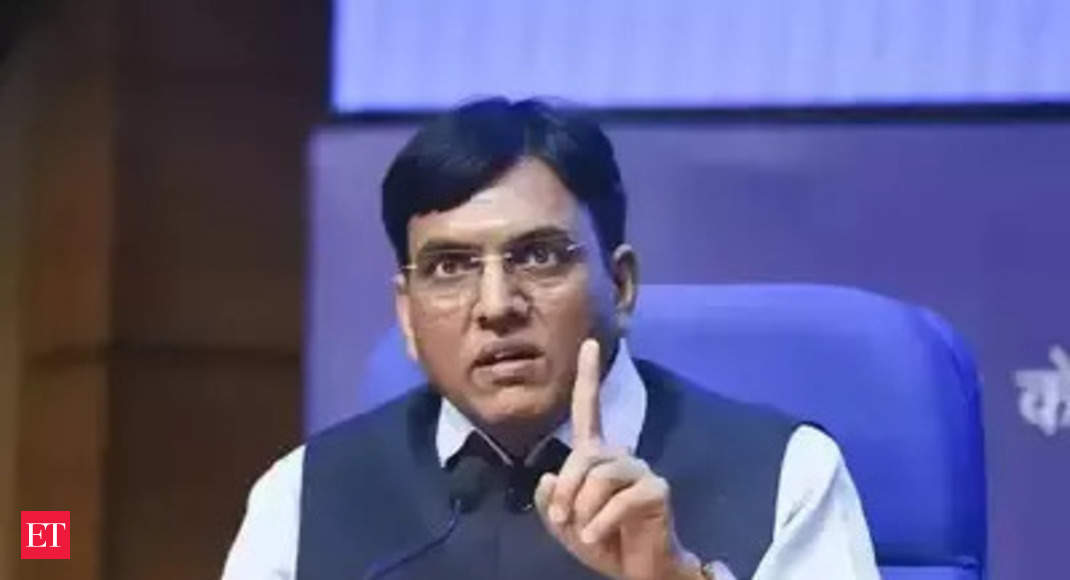
Over 1,500 private hospitals empanelled under Ayushman Bharat in last one year: Mansukh Mandaviya
Over 1,500 private hospitals empanelled under Ayushman Bharat in last one year: Mansukh Mandaviya
Union Health Minister Mansukh Mandaviya on Friday said more than 1,500 private hospitals have been empanelled under the Ayushman Bharat scheme in the last one year. The scheme is reviewed every month and out-of-pocket expenditure of patients under the scheme has come down, Mandaviya said, replying to a question in Lok Sabha. Under the scheme launched in 2018, the government provides health security cover to 10 crore families or 50 crore people of India. Today, 4.5 crore needy people have been empanelled under the scheme, the minister said. He said seven-eight lakh beneficiary cards are printed daily and the ministry was working to ensure that 50 crore cards are made available in the next four-six months. “Poor and needy people are covered under the Ayushman Bharat scheme and they can avail Rs 5 lakh health security cover. Any hospital can empanel under the scheme … In the last one year, more than 1,500 private hospitals have been empanelled under the scheme,” Mandaviya said during the Question Hour. The minister said 22,000 hospitals, both public and private, have been empanelled under the scheme so far.
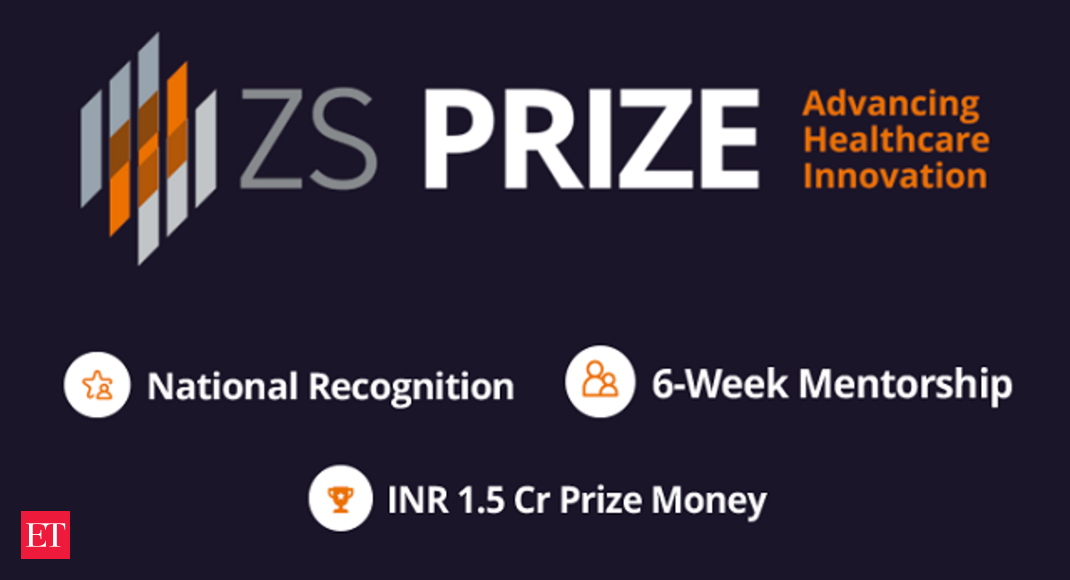
Tech-enabled healthcare innovations set to increase, says ZS PRIZE healthcare tech challenge jury member Aarti Shah
Tech-enabled healthcare innovations set to increase, says ZS PRIZE healthcare tech challenge jury member Aarti Shah
As India ramps up its focus on achieving self reliance in healthcare, the number of tech-enabled healthcare innovations powered by data, tech, and advanced analytics will likely increase, said ZS PRIZE healthcare tech challenge jury member Aarti Shah, who is the former Senior VP, Chief Information & Digital Officer, Eli Lilly and Co. ET Spotlight ZS PRIZE Jury member Aarti Shah on the need for more women leaders in healthcare ZS PRIZE jury member Aarti Shah, former Senior VP, Chief Information & Digital Officer, Eli Lilly and Co, believes the existing challenges in the Indian healthcare industry also present opportunities to transform the state of healthcare in the country.Speakng with Miloni Bhatt, Editor – Digital Broadcast, EconomicTimes.com, Shah also highlighted the need for more women leaders in healthcare, noting the lack of enough women role models in leadership roles in the healthcare sector. While the majority of nurses and the care-giving staff are women, there’s not enough women representation in policy making or decision-making roles, said Shah.ZS PRIZE is a healthcare tech challenge designed by global management consulting and tech firm ZS to recognise and celebrate tech-enabled healthcare innovations solving for India. “Technology, data and advanced analytics – it’s the intersection of all three where we need to unleash the potential for healthcare innovation… whether it’s in terms of patient outcomes and telemedicine, reaching the most remote patient, making healthcare more patient centric, and of course, increasing efficiencies,” said Shah, who currently sits on the boards of NVIDIA and Northwestern Mutual and is among the seven-member august jury panel at the second edition of ZS PRIZE. ZS PRIZE is a healthcare tech challenge designed by global management consulting and tech firm ZS to recognise and celebrate tech-enabled healthcare innovations solving for India. ZS PRIZE award invites startups, working professionals, and students to submit their ideas for innovative solutions in healthcare using data, analytics, and advanced technology with the aim of advancing the creation of smart health solutions that are accessible and affordable for all. ET Spotlight Registrations for ZS PRIZE award second edition will close late December 2022. Apply now. Speaking about the ZS PRIZE healthcare tech challenge, Shah – who has nearly three decades of experience working in pharmaceutical industry – listed the three things that attracted her to be a part of the initiative as a ZS PRIZE jury member: 1) its focus on improving patient outcomes, 2) providing a platform to bring the healthcare ecosystem of startups, working professionals, students, entrepreneurs, and academia together, and 3) the learning and mentoring opportunity as well as the funding provided to participants to enable the right growth. As part of her advice to the participants of ZS PRIZE healthcare tech challenge, Shah said, “Keep the patient as the Northstar. You are doing this for a superb purpose. Working in healthcare is not for the faint of heart. You need to have the courage, perseverance and the will to make a bigger impact in society and to mankind.” The top eight teams who are selected after completion of multiple phases will present their healthcare innovations to the ZS PRIZE jury that boasts of some of the biggest names from healthcare and tech industries and stand a chance of sharing the Rs. 1.5 crore prize money and participating in an in-depth mentoring program by healthcare industry experts. Registrations for ZS PRIZE award second edition will close late December 2022. Apply now
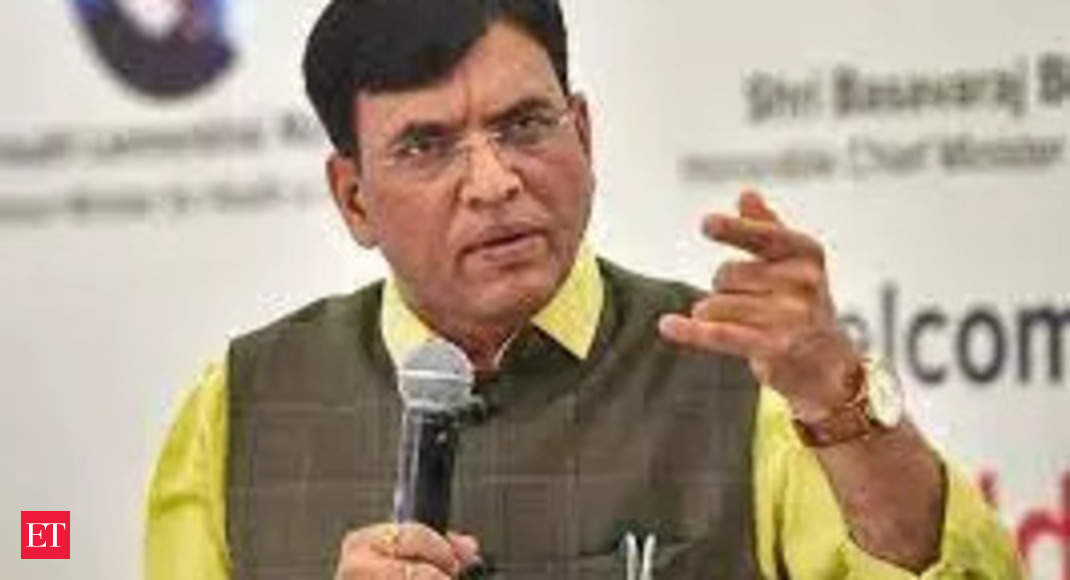
“Digital Health will be a Key Priority in India’s G20 Presidency”
“Digital Health will be a Key Priority in India’s G20 Presidency”
Union Minister for Health and Family Welfare Mansukh Mandaviya says India remains alert about new variants of coronavirus and is on a mission to eradicate TB by 2025. A star campaigner for BJP in Gujarat, he says the party would win a record number of seats in the assembly elections. Edited excerpts from an interview with Prerna Katiyar: How many seats will BJP win in Gujarat? BJP will break its own record. I am not going into numbers but we will come up with a record win. But Congress limited BJP to 99 seats in 2017. The situation in 2022 is very different from 2017. Last time, the Patidar andolan had an impact. There was discontent among farmers as well. There was an anti-BJP perception in certain pockets. Also, that was an election fought in the absence of Narendra Modiji as CM in a long time. Still, we got a comfortable majority of 99. Today the old issues have been resolved. The farmers are happy as they are getting adequate price for their produce and water for irrigation; so are entrepreneurs and businesspersons. This time there is AAP. There is no triangular fight; no third party stands a chance. This is Gujarat. Tall leaders such as Shankersinh Vaghela left BJP and formed RJP (Rashtriya Janata Party). What happened next? He lost and got only four seats. Look at what happened to Keshubhai Patel? He formed his own party and got just two seats. People of Gujarat do not like parties that are here to distribute revdi (goodies). But no CM since Modi has been able to complete a full term in Gujarat. Is there a leadership crisis in the state? There is no such crisis. From Gujarat, we had Mahatma Gandhi and Sardar Vallabhbhai Patel. Now we have Narendrabhai Modi and Amitbhai Shah. Chief ministers might have been changed but there is no lack of leadership. Last time BJP performed poorly in Saurashtra where Congress won 30 of 54 seats. This time we will get more than 35 seats. What impact will the Morbi bridge tragedy have on BJP in the polls? This is not a political issue. It was a tragic incident. Over 130 people lost their lives. We should focus on understanding why this happened, providing relief and ensuring that such an incident does not get repeated. Still, parties are trying to politicise the issue. Over a dozen Congress MLAs who joined BJP have got tickets. Won’t your angry workersturned-rebels hurt the party? BJP karyakartas never work with personal benefits in mind. Those who do not fit in, leave the party. The rebels are not in a position to hurt us. Last time Patidars turned towards the Congress. Will they vote for BJP now? Patidars have traditionally been BJP voters. In 2017, despite the andolan, a large number of them voted for us. In Surat, four seats have over 80% Patidars and we won. I come from Bhavnagar where Patidars are in a majority and we won six out of seven seats. Similarly, we won Ahmedabad comfortably. We won many Patidar-dominated seats. The number might have come down a bit but it is going to increase this time. Our old support base is coming back to us. Coming to your ministry, do you feel Covid is still a threat in India? India has completed over 219 crore Covid-19 vaccination and we will soon hit the 220 crore mark. We are focused on ensuring that more and more eligible beneficiaries get their precaution dose at the earliest. Although the number of active Covid-19 cases in India is 405, we are very vigilant and are keeping a close watch on activities across the world. Our research with respect to new variants and other emerging threats is going on vigorously. There is no laxity and lack of seriousness. Our scientists and doctors are working day and night to keep India safe from any Covid-19-related threat. India is one of 30 countries with the highest burden of tuberculosis (TB) cases. What is the government doing to eradicate this? The world has planned to eradicate TB by 2030, but in India under PM Narendra Modi, we have planned to eradicate TB by 2025. To achieve this, President Droupadi Murmu recently launched the Pradhan Mantri TB Mukt Bharat Abhiyaan and Ni-Kshay 2.0 Portal. Under this, over 10.2 lakh TB patients have consented to receive community support. Almost all TB patients have found a helping hand from Ni-Kshay Mitras. Our ‘Adopt A TB Patient’ initiative has received global applause from WHO. The government is fighting TB in mission mode. We have strengthened the diagnostic facilities, increased TB testing and improved the treatment success rate. Also, under the Aashwasan campaign, over 1 crore persons were screened in 174 tribal districts and door-to-door screening for TB was undertaken, covering 68,019 villages. Can you elaborate on ‘Heal in India’ and ‘Heal by India’ initiatives? People from different countries are coming to India for treatment as we have a world-class healthcare ecosystem at affordable prices. To boost medical tourism, we have launched the ‘Heal in India’ programme. Similarly, the government has started the ‘Heal by India’ programme to provide an opportunity for our medical workforce to travel all over the world and contribute towards a healthy global society. We are working relentlessly towards making India a global medical value hub by strengthening our traditional medicine industry and boosting ‘Heal in India’ and ‘Heal by India’ initiatives. There is a huge shortfall of specialists in community health centres in rural areas. How does the government plan to fill this gap? The government is investing significantly in increasing the workforce in the health sector. The funds spent on the National Health Mission is greater than the overall health budget of 2013-14. The number of ASHA workers has increased from 8.95 lakh in 2013-14 to 10.78 lakh in 2021-22; the number of PHCs working 24×7 has increased from 8,421 in 2013-14 to 11,144 in 2021-22. The ministry has set a target of distributing 10 lakh Ayushman Bharat cards per day by December. Will you meet the target? We are confident of achieving our target very soon. As of now, we are creating around 7 lakh Ayushman cards daily. What steps are being taken to update the Digital Health initiative? Digital health is the future. Ayushman Bharat Digital Mission (ABDM) has revolutionised the digital healthcare landscape of India. Under ABDM, over 26.84 crore IDs have been created. There are 1,70,907 verified health facilities and 97,857 verified healthcare professionals. We are strengthening digital health interventions. Over 7 crore teleconsultations have been performed through eSanjeevani. India emerged as an example for its successful Covid-19 management and vaccination — a big credit for this goes to our innovators who came up with digital solutions. CoWIN, Aarogya Setu and other digital endeavours significantly strengthened India’s collective fight against Covid-19. Digital health will be one of our key priorities during India’s G20 presidency. What is the government’s roadmap for healthcare by 2024? We are leaving no stone unturned to make healthcare affordable and accessible to all. We are expanding and strengthening our health infrastructure at primary, secondary and tertiary levels. Modiji has launched the Pradhan Mantri Ayushman Bharat Health Infrastructure Mission to strengthen critical healthcare networks from village to national level in the next four-five years. ABDM is creating the necessary ecosystem for delivering efficient and inclusive universal health coverage for people even in the remotest corner of the country. Similarly, the largest health assurance scheme in the world is being implemented under the Ayushman Bharat PM-JAY, providing a health cover of `5 lakh per family per year. From medical education to mental health, from traditional medicines to digital health, each and every aspect of healthcare is being taken care of. A healthy and prosperous India is our ultimate goal.
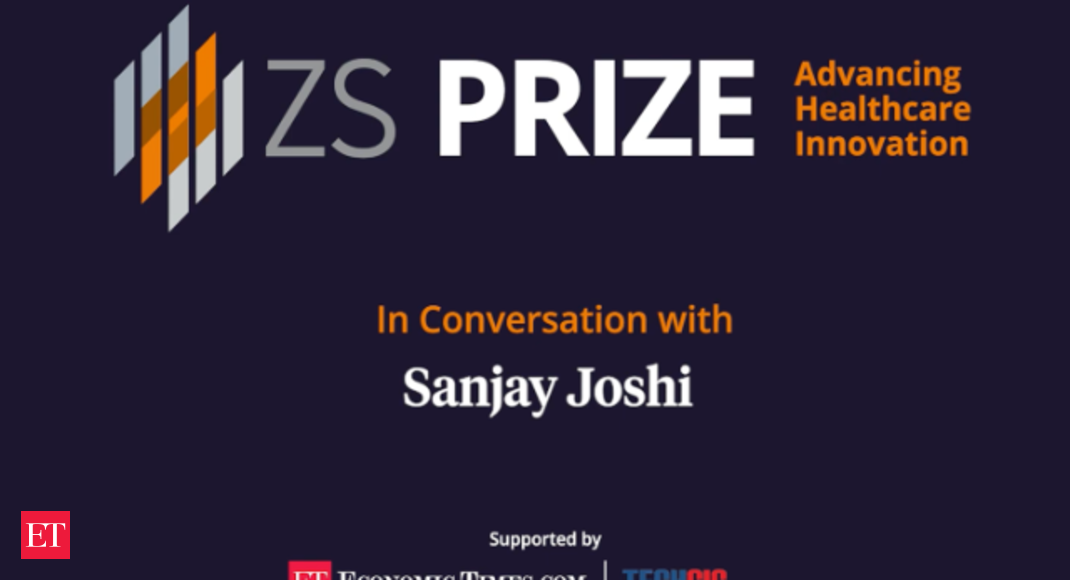
ZS PRIZE healthcare challenge to be a catalyst for advancing global healthcare agenda, says ZS’s Sanjay Joshi
ZS PRIZE healthcare challenge to be a catalyst for advancing global healthcare agenda, says ZS’s Sanjay Joshi
ZS PRIZE, the healthcare challenge designed by global management consulting and tech firm ZS, has the potential to be a catalyst in promoting and advancing the global healthcare agenda through interesting startups and great ideas that can lead to better health outcomes for all, said Sanjay Joshi, Managing Principal of ZS and founder of ZS PRIZE. ZS, with the depth and years of experience it has in the healthcare sector, launched ZS PRIZE as a forum to recognise, promote and celebrate impactful healthcare solutions using disruptive technologies, making the future of healthcare accessible and affordable to all. ZS PRIZE focuses on innovations that use technologies such as data, analytics, and advanced technology and helps create smart health solutions which are affordable, accessible and scalable. For this second edition of ZS PRIZE, Joshi said, “Solve for Bharat would be my earnest encouragement and request so that we come a little bit closer to this goal of a better healthcare outcome for all”. ZS PRIZE as a catalyst to help advance healthcare for all A conversation with Sanjay Joshi, Managing Principal and Founder, ZS PRIZE in conversation with Miloni Bhatt, Editor – Digital Broadcast, Economic Times talked about ZS as a whole, what was the motivation behind ZS PRIZE, what is the ultimate goal of ZS PRIZE and how the second edition is going to be different from the first. ZS PRIZE is a global management consulting and technology firm that serves some of the world’s largest biopharma companies. In the spirit of revolutionizing healthcare and in the spirit of digital first, ZS is investing and taking an active role in driving the transformation of the healthcare industry through a platform based model innovation model. ZS PRIZE started during the pandemic and the idea/motivation behind it was to be a catalyst and forum to help advance healthcare for all. ZS PRIZE started in India due to the high need and the strong talent base, but the goal is to go global- ZS PRIZE wants to be an institution that is about healthcare innovation for all (on a global scale). Opportunities for disruption are everywhere and ZS PRIZE wants to help in disrupting. The winners and the finalist of the 1st editions have gone on to be successful, for the 2nd edition ZS PRIZE will focus more on mentorship and the global network it can provide to innovators. ZS PRIZE wants innovators to think big, think Bharat and think health equity for all. In this second edition of ZS PRIZE, we can expect to see thousands of medical innovators from all around the country, with different backgrounds, working towards creating better healthcare for tomorrow. ZS PRIZE is helping in transforming the healthcare sector by acting as a catalyst for startups and innovators so their solutions can make real-world impacts. The winning teams will create smart health solutions that benefit millions of citizens. These teams do not just gain recognition by winning the ZS PRIZE award, they are also provided mentorship, cash prize and connections by ZS. ZS PRIZE started off in India due to the need for disruption in the health sector and because of the wide talent pool available in the country. To add to that, the digital revolution that is taking place in the nation is only increasing the opportunities for disruption. Eventually, ZS PRIZE will go global and help catalyze the innovations of entrepreneurs from all over the world, to solve issues all over the world at a local and global scale. However, for now, think big, think Bharat and think health equity for all remains the focus of ZS PRIZE.
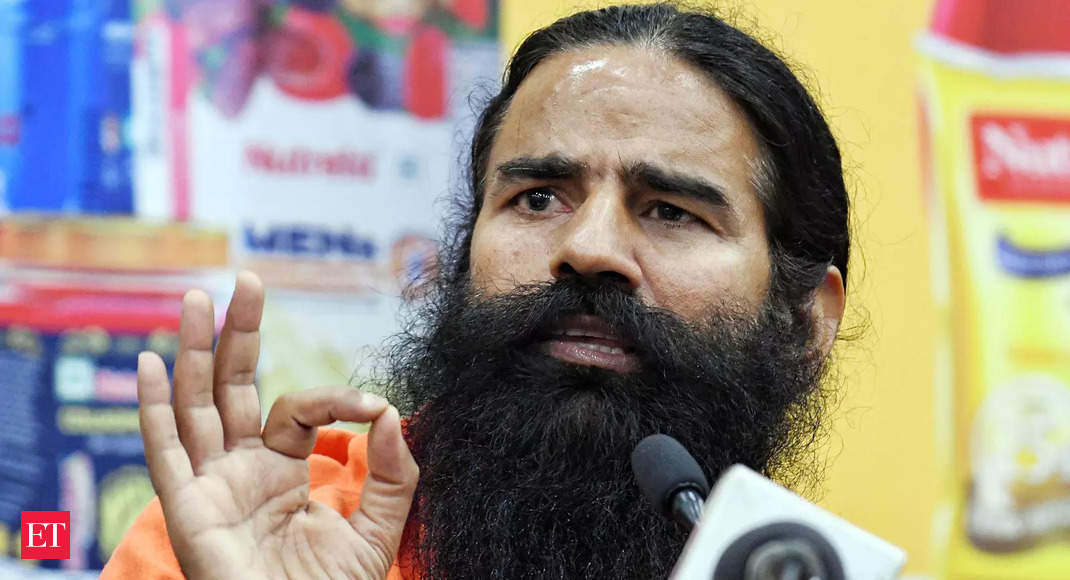
Patanjali working on finding solutions for Lumpy Skin Disease: Ramdev
Patanjali working on finding solutions for Lumpy Skin Disease: Ramdev
Baba Ramdev on Friday said the Patanjali Group is working on finding solutions for Lumpy Skin Disease (LSD) that has caused death of around 1 lakh cows. Ramdev suggested that the government should create awareness about the disease, which he alleged that might have “come from Pakistan”. He said the government should also investigate how the disease entered the country and spread across many states. “We are working on Lumpy Skin Disease virus,” Ramdev told reporters. He said around one lakh cows have died because of this disease. Ramdev said the disease also affected many cows in his shelter house at Haridwar but not even a single cow died. “We treated cows with ayurvedic medicines like Giloy. Cows having better immunity were not infected with this disease,” he said. The LSD has spread in more than a dozen states, including Gujarat, Rajasthan, Punjab and Haryana. The disease has affected 16.42 lakh cattle in 197 districts and has killed 75,000 cattle between July and September 11, 2022, according to data maintained by the Department of Animal Husbandry. LSD is a contagious viral disease that affects cattle and causes fever, nodules on the skin and can also lead to death. The disease gets spread by mosquitoes, flies, lice, and wasps by direct contact among the cattle, and through contaminated food and water. The Centre has said that goat pox vaccine, currently being administered on cattle to control the LSD, is 100 per cent effective. Two institutes of agri research body ICAR have developed a new vaccine ‘Lumpi-ProVacInd’ for the LSD, but it has not been commercially launched. India, the world’s largest milk producer, had a cattle population of 192.5 million in 2019, as per the 19th Livestock census.

Budget outlay in health sector, vaccine self-reliance has helped biotech industry: Bharat Biotech chairman
Budget outlay in health sector, vaccine self-reliance has helped biotech industry: Bharat Biotech chairman
Dr Krishna Ella, Chairman and Managing Director of Bharat Biotech on Wednesday welcomed the Union Budget 2022 and said that during COVID-19 pandemic budget outlay in the healthcare sector and vaccine self-reliance has helped the biotech industry. While commenting on the Budget, in a statement, Dr Ella said, “The budget outlay on the healthcare sector and vaccine self-reliance during the pandemic has helped the biotech industry not only to speed up research and development but also augment manufacturing.” “Continuing reforms and Government contributions towards ‘Sabka Prayaas’ to build a national digital health ecosystem, academia, industry and public institutions collaborations will further help augment the development of science and innovation in the country as well as nurture healthcare startups,” he added. Dr Ella said Agriculture, Defence, and the Clean Energy sector are three notable statements in the Budget which is indeed promising and key to sustaining overall growth for the country. “Increased focus on startups by extending more support and incentivizing entrepreneurs in Agriculture, Defence, and the Clean Energy sector are three notable statements in the Budget which are indeed promising and key to sustaining overall growth for the country.” He further said promoting chemical-free products, drones for farmers, NABARD finance for startups, machines, and IT-enabled businesses will all provide a great push to agro-startups. “Further, putting a strong focus on infrastructure and logistics, laying down a firm road map to augment growth in development provides greater momentum to the Agriculture Industry. Promoting Chemical-free products, drones for farmers, NABARD finance for startups, machines, and IT-enabled businesses will all provide a great push to agro-startups,” he said. Dr Ella said that the agri-education reform, reduced oil imports, millet product branding, public-private partnership encouragement, and portals for selling their goods would help to develop this sector. “Make in India and Made in India Focus in Defence is another key component of this budget with an announcement to buy 68 per cent of defence products locally made in collaboration with university and industry through the DRDO SPV. Significant expansion in the sector will also fuel a greater focus on defence research and development,” he added. Furthermore, bolstering Public-Private-Partnership (PPP) in Research and Development will boost the economy, said the Bharat Biotech chairman. Union Finance Minister Nirmala Sitharaman tabled Union Budget 2022-23 on Tuesday.
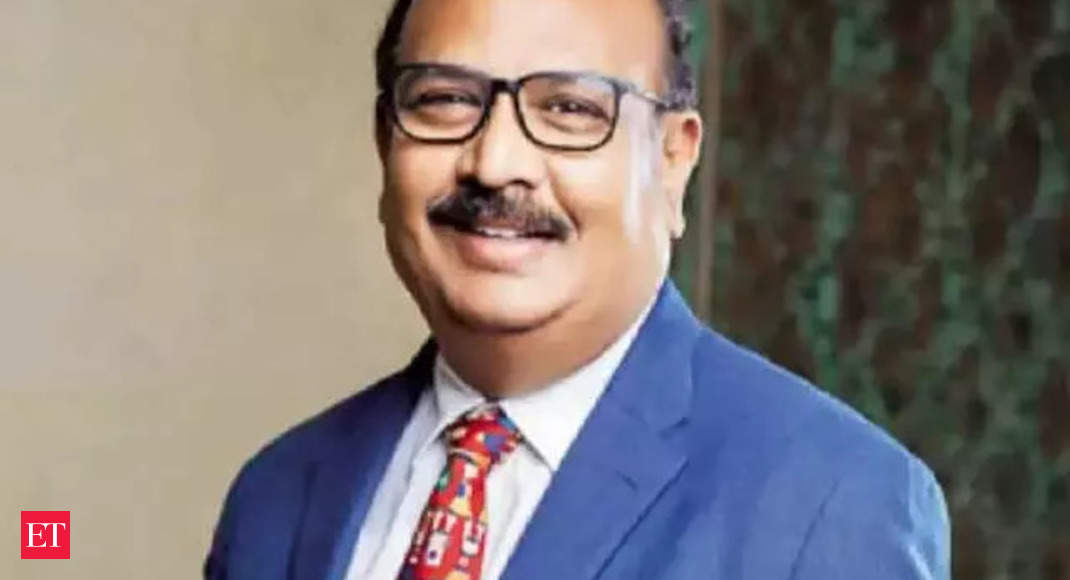
Booster dose giving encouraging results against Omicron, data to be made public soon: Dr Krishna Ella, Bharat Biotech CMD
Booster dose giving encouraging results against Omicron, data to be made public soon: Dr Krishna Ella, Bharat Biotech CMD
Bharat Biotech’s CMD Dr Krishna Ella in an exclusive interaction with Mirror Now said that his company is ‘getting some good results’ on vaccine working against the mutated Omicron variant of novel coronavirus. “The booster dose is giving very encouraging results, it’s giving a better result than Delta. On Omicron also, we are getting some good results, which should come out in two to three days in the public domain,” Dr Ella said.
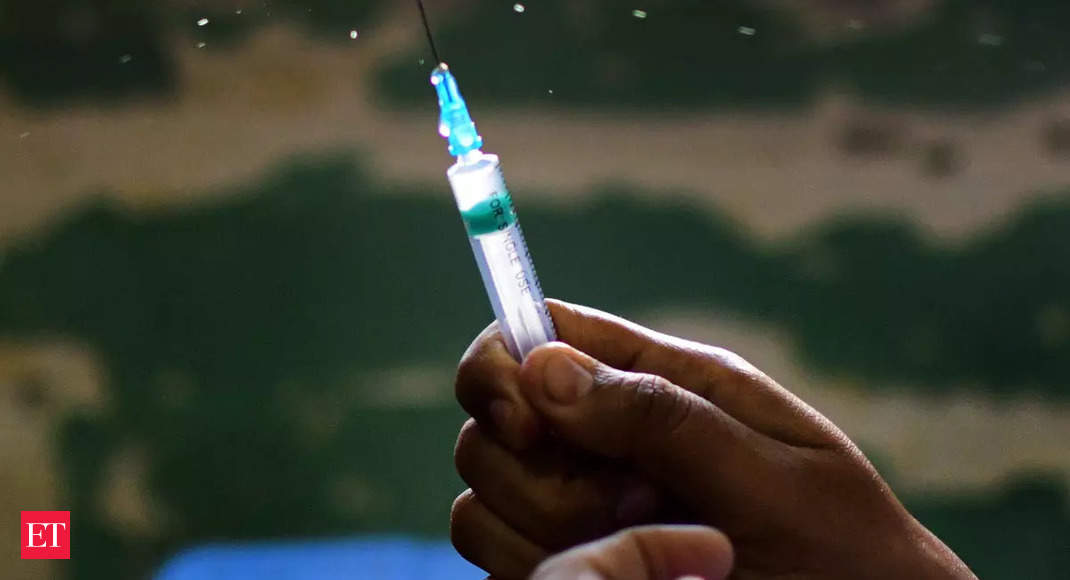
Hester Biosciences gets Rs 60 crore grant from govt to make Covaxin drug substance
Hester Biosciences gets Rs 60 crore grant from govt to make Covaxin drug substance
Hester Biosciences on Thursday said it got a grant of Rs 60 crores from the government’s Biotechnology Industry Research Assistance Council (BIRAC) to manufacture Covid vaccine under Mission Covid Suraksha. BIRAC is part of the Department of Biotechnology. Hester said its Board has approved the execution of Grantin-Aid Letter Agreement for grant of Rs 60 crore in a phased manner to the company by BIRAC. The Ahmedabad-based poultry and animal vaccine maker is a part of Gujarat Covid Vaccine Consortium (GCVC), which in May 2021 signed an agreement with Bharat Biotech for manufacture of Covaxin drug substance. As per the agreement, Hester will supply the drug substance to Bharat Biotech which will then do the fill-finish at its facilities. Hester is investing Rs 100 crore on the project, which will enable it to produce 5-7 million doses of the Covaxin drug substance every month. Hester was supposed to roll out the Covaxin drug substance in April this year, but Rajiv Gandhi, CEO of Hester Biosciences, told ET that the project has been delayed by two months.
